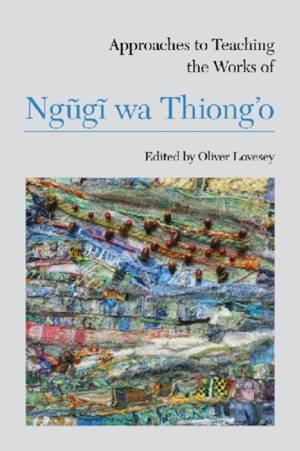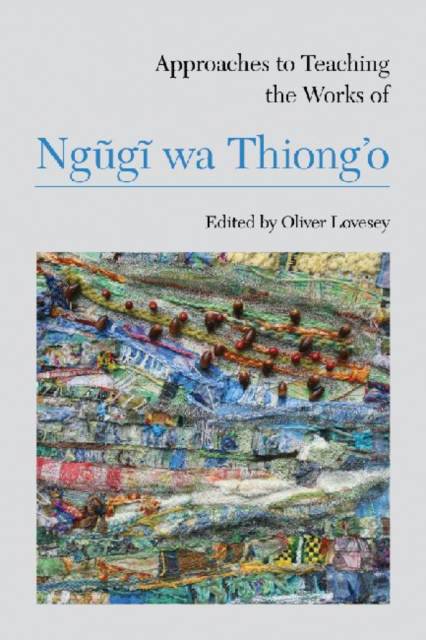
- Afhalen na 1 uur in een winkel met voorraad
- Gratis thuislevering in België vanaf € 30
- Ruim aanbod met 7 miljoen producten
- Afhalen na 1 uur in een winkel met voorraad
- Gratis thuislevering in België vanaf € 30
- Ruim aanbod met 7 miljoen producten
Zoeken
Omschrijving
Ngũgĩ wa Thiong'o is one of the most important and celebrated authors of postindependence Africa as well as a groundbreaking postcolonial theorist. His work, written first in English, then in Gĩkũyũ, engages with the transformations of his native Kenya after what is often termed the Mau Mau rebellion. It also gives voice to the struggles of all Africans against economic injustice and political oppression. His writing and activism have continued despite imprisonment, the threat of assassination, and exile.
Part 1 of this volume, Materials, provides resources and background for the teaching of Ngũgĩ's novels, plays, memoirs, and criticism. The essays of part 2, Approaches, consider the influence of Frantz Fanon, Karl Marx, and Joseph Conrad on Ngũgĩ; how the role of women in his fiction is inflected by feminism; his interpretation and political use of African history; his experimentation with orality and allegory in narrative; and the different challenges of teaching Ngũgĩ in classrooms in the United States, Europe, and Africa.
Part 1 of this volume, Materials, provides resources and background for the teaching of Ngũgĩ's novels, plays, memoirs, and criticism. The essays of part 2, Approaches, consider the influence of Frantz Fanon, Karl Marx, and Joseph Conrad on Ngũgĩ; how the role of women in his fiction is inflected by feminism; his interpretation and political use of African history; his experimentation with orality and allegory in narrative; and the different challenges of teaching Ngũgĩ in classrooms in the United States, Europe, and Africa.
Specificaties
Betrokkenen
- Auteur(s):
- Uitgeverij:
Inhoud
- Aantal bladzijden:
- 265
- Taal:
- Engels
- Reeks:
- Reeksnummer:
- nr. 121
Eigenschappen
- Productcode (EAN):
- 9781603291132
- Verschijningsdatum:
- 1/12/2012
- Uitvoering:
- Paperback
- Formaat:
- Trade paperback (VS)
- Afmetingen:
- 152 mm x 226 mm
- Gewicht:
- 385 g

Alleen bij Standaard Boekhandel
+ 83 punten op je klantenkaart van Standaard Boekhandel
Beoordelingen
We publiceren alleen reviews die voldoen aan de voorwaarden voor reviews. Bekijk onze voorwaarden voor reviews.








